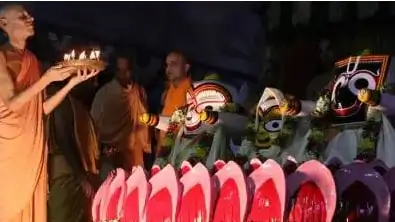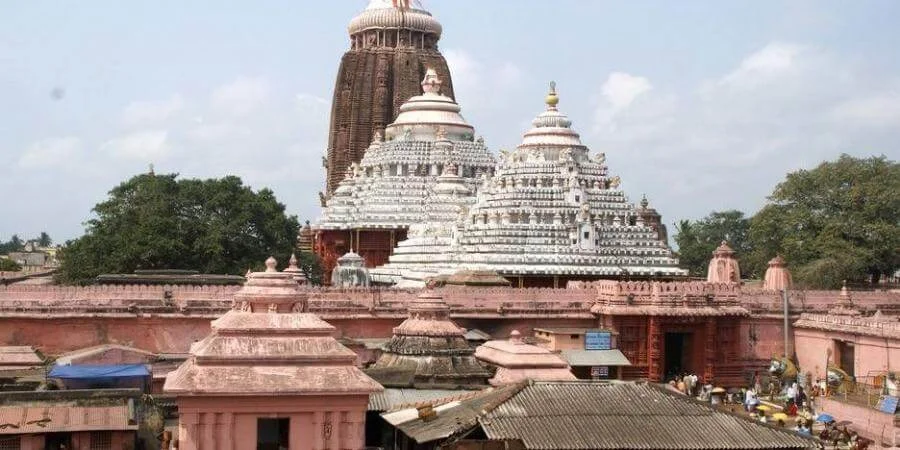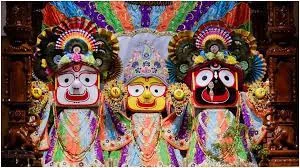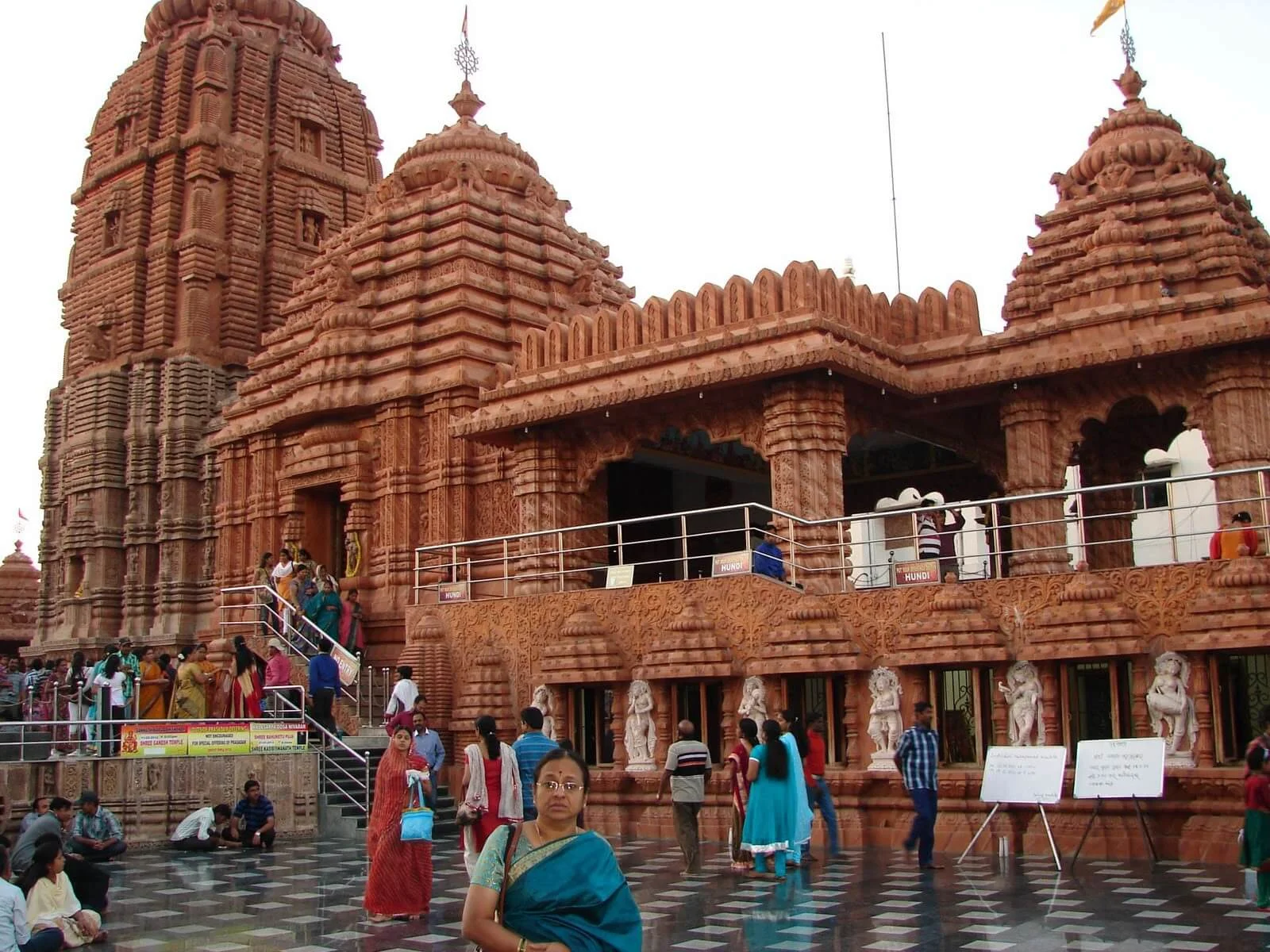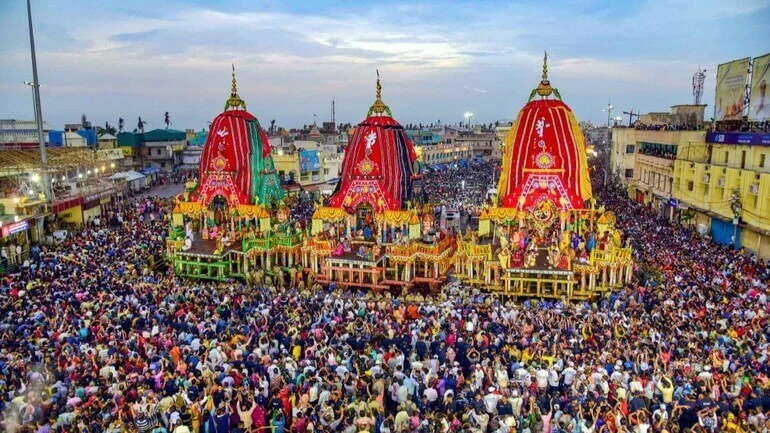Lord Jagannath And Mahakumbh Mela's Secret Link: Kumbh Scholar Reveals 100 Year Connection Between Puri And Prayag
Two sacred institutions stand as pillars of devotion: the ancient cult of Lord Jagannath at Puri and the magnificent gathering of Mahakumbh at Prayagraj. While seemingly distinct, these sacred traditions share deep-rooted connections that many devotees might find surprising.
The Puranic Connection
Ancient texts, particularly the Skanda Purana and Padma Purana, establish a profound connection between these holy traditions. According to Dr. Rabindra Narayan Mishra, a senior researcher at the Jagannath Sanskrit University in Puri, "The sacred texts mention that Lord Jagannath himself takes a holy dip at the Triveni Sangam during specific astronomical alignments, which coincide with the Kumbh dates."
The historical records at the Puri temple archives reveal that special rituals are performed during Kumbh periods, acknowledging this mystical journey of the deity. These rituals, known as "Tirtha Yatra Niti," are among the 64 principal rituals (Chausathi Nitis) of the Jagannath temple.
Shared Sacred Waters
One of the most tangible connections between these traditions lies in the use of sacred water. During the famous Snana Yatra (bathing ritual) of Lord Jagannath, water from all major holy rivers, including the Ganges from the Triveni Sangam, is traditionally used to bathe the deities.
Dr. Bhaskar Mishra, a senior servitor (sevayat) at the Puri temple, explains: "For centuries, special messengers called 'Tirtha Pandas' have been designated to collect water from the Sangam for Lord Jagannath's rituals. During Kumbh years, this collection becomes even more significant."
Ancient Pilgrimage Routes
Historical records from the medieval period reveal established pilgrimage routes connecting Puri and Prayag. Professor Amita Singh of Allahabad University's Ancient History Department notes, "Medieval inscriptions and travel accounts indicate that pilgrims often completed a triangle of pilgrimage between Puri, Prayag, and Varanasi. This route was considered especially sacred during Kumbh years."
Archaeological evidence, including rest houses (dharamshalas) and inscriptions along these routes, suggests organized pilgrimage patterns dating back to at least the 9th century CE.
Ritual Similarities
The bathing rituals at both sacred sites share remarkable similarities. The Mahakumbh's holy dip at the Sangam and Lord Jagannath's Snana Yatra both follow specific astronomical calculations and are believed to bestow similar spiritual benefits.
"Both traditions emphasize the purifying power of sacred water and the concept of spiritual transformation through ritual bathing," explains Dr. Rajendra Prasad, a religious studies scholar at Banaras Hindu University. "The timing of these rituals often aligns with similar astronomical events."
Administrative Connections
Historical records from various dynasties, particularly the Ganga Dynasty of Odisha (11th-15th centuries), show administrative links between the two sacred sites. Kings often made provisions for pilgrims traveling between Puri and Prayag, especially during Kumbh years.
The British-era gazetteers also document how the colonial administration had to coordinate between these sites during major festivals, indicating the continued importance of their connection well into the modern era.
Modern Observances
Today, these ancient connections are maintained through various practices. During each Mahakumbh, a special delegation from the Jagannath Temple in Puri participates in the celebrations at Prayagraj. Similarly, sacred water from the Kumbh is still sent to Puri for use in special ceremonies.
"During the 2019 Kumbh, we hosted a special pavilion dedicated to Lord Jagannath, where thousands of pilgrims received prasad from Puri," recalls Mahant Hari Giri, a senior member of the Kumbh organizing committee.
Preservation Efforts
Efforts are underway to document and preserve these historical connections. The Jagannath Culture Research Institute in Puri and the Prayagraj Research Institute have jointly initiated a project to compile historical records and oral traditions linking these sacred institutions.
As preparations for the 2025 Mahakumbh progress, organizers are planning special exhibitions highlighting these ancient connections. "Understanding these links helps us appreciate the integrated nature of India's spiritual traditions," says Dr. Vibhuti Narayan Singh, a cultural advisor to the Mahakumbh Committee.
These connections between Lord Jagannath and the Mahakumbh Mela represent more than just shared religious history – they demonstrate the intricate web of spiritual traditions that has bound Indian culture together for millennia. As millions prepare to gather at the next Mahakumbh, these ancient bonds continue to enrich both traditions, reminding devotees of the deep interconnectedness of India's sacred heritage.

